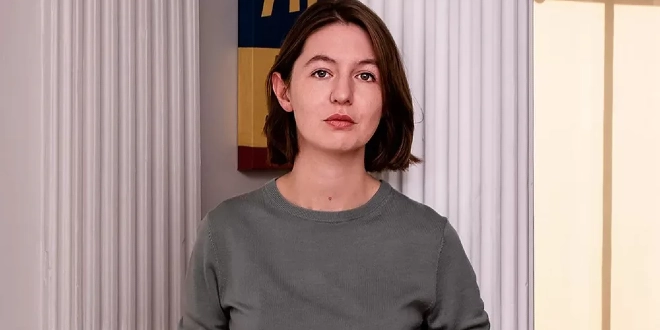Acclaimed Irish novelist Sally Rooney has been told she could face arrest if she enters the United Kingdom, following her vocal support for Palestine Action, a group proscribed as a terrorist organisation in July.
Background to the Ban
Palestine Action, known for direct protest campaigns targeting arms manufacturers, was banned under the UK’s Terrorism Act 2000 earlier this summer. The decision followed the group’s claim of responsibility for damaging two Voyager military aircraft at RAF Brize Norton on 20 June. The UK government argued that such actions crossed the threshold into terrorism, making support for the group a criminal offence.
Rooney, best known for her novel Normal People, has consistently expressed solidarity with Palestinian causes. She has described Palestine Action as a non-violent, anti-war movement and openly defied the ban. Despite the risk, she has pledged to remain a supporter.
Statement at Literary Award
On Tuesday, Rooney was named winner of the Sky Arts Award for Literature for her novel Intermezzo. Too wary to travel to London in person, she relayed her message through her editor at Faber, Alex Bowler.
In the statement, Rooney thanked the judges and her readers, saying she was “so touched and grateful to receive this prize” and that writing Intermezzo had been a deeply meaningful experience. She added:
“I wish that I could be with you this evening to accept the honour in person, but because of my support for non-violent anti-war protest, I’m advised that I can no longer safely enter the UK without potentially facing arrest. In that context, I want to thank you all the more warmly for honouring my work tonight and to reiterate my belief in the dignity and beauty of all human life, and my solidarity with the people of Palestine.”
Her remarks drew strong applause at the ceremony, underlining the tension between her literary acclaim and the political controversy surrounding her activism.
Government Warnings and Legal Challenges
Rooney’s stance has already attracted official attention. In August, Downing Street warned that her pledge to donate royalties from her books and BBC adaptations to Palestine Action could constitute a terrorist offence under UK law.
The author has also backed legal action brought by Huda Ammori, co-founder of Palestine Action, who is challenging the Home Office’s decision to outlaw the organisation. The case has become a focal point in debates about free speech, civil disobedience, and the boundaries of anti-war protest.
Wider Unrest
The proscription of Palestine Action has sparked significant opposition. Earlier this month, nearly 900 people were arrested at a mass demonstration in central London protesting the ban. Civil rights advocates have raised concerns that the government is using terrorism legislation to silence dissent and criminalise activism.
For Rooney, the situation underscores the personal cost of political engagement. While her literary reputation continues to grow, her ability to travel freely to one of literature’s major cultural hubs is now clouded by the risk of arrest.
What This Means
The clash between Rooney’s activism and the UK government’s counterterrorism framework illustrates the broader debate around how democratic states handle protest movements that target national security interests. For her readers, Rooney’s case highlights the increasingly blurred line between art, politics, and the law.
Prediction for the future: As legal challenges proceed, the outcome of Ammori’s case and broader public debate may determine whether the ban on Palestine Action remains in place—or whether figures like Rooney can continue to voice support without facing criminal consequences.
 The Daily Star Ireland
The Daily Star Ireland



